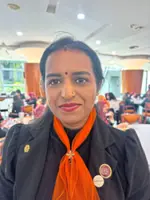To help eliminate sexual harassment in the workplace, Women’s Aid Organisation has recently launched the “We Pledge” programme.
“This will address SDG 5, which is the elimination of violence against women in the workplace,” says WAO Partnerships & Development director Amnani Abdul Kadir.





